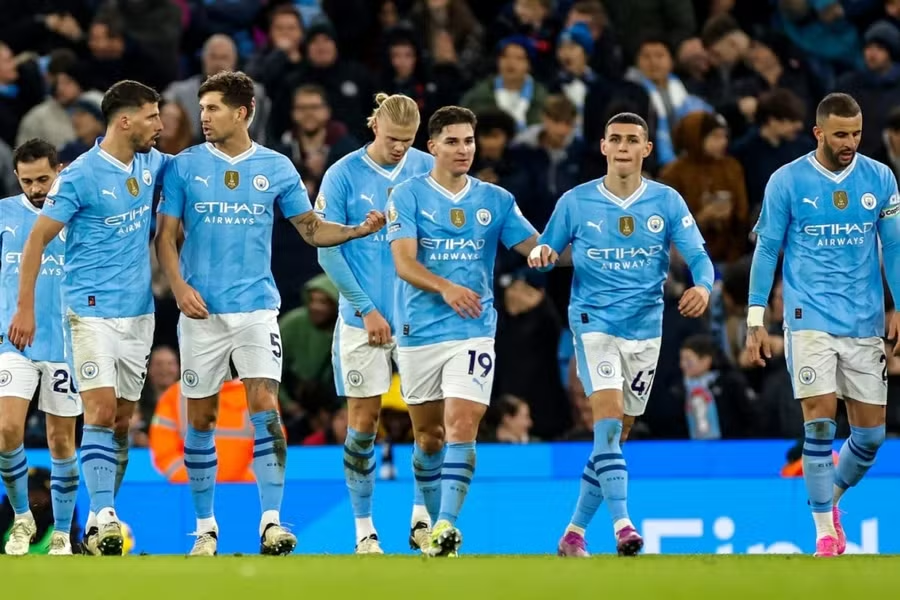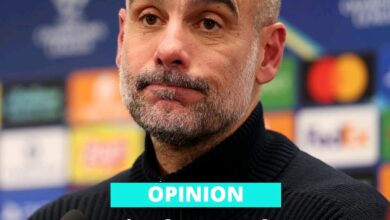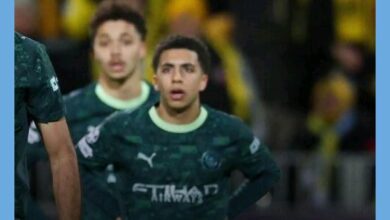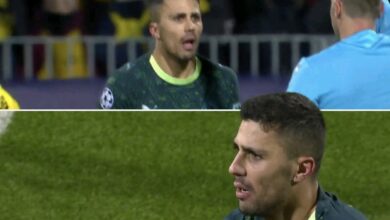Saudi trio in contact with Man City outcast

The football world is abuzz with speculation surrounding Manchester City midfielder Jack Grealish, as the England international finds himself at the center of a high-stakes transfer carousel involving lucrative offers from the Saudi Pro League. The 30-year-old playmaker, who once commanded a British record transfer fee of £100 million when he moved from Aston Villa to Manchester City in 2021, now faces a crossroads in his career that could define his footballing legacy and financial future.
The Current Predicament: Excluded and Transfer-Listed
Grealish’s situation at Manchester City has become increasingly precarious following a series of developments that have effectively signaled the end of his tenure at the Etihad Stadium. The most telling indicator of his diminished status came with his exclusion from City’s Club World Cup squad, a decision that sent shockwaves through the footballing community and confirmed what many had suspected: Grealish’s days in sky blue are numbered.
The decision to leave him out of such a prestigious tournament squad represents more than just a tactical choice by manager Pep Guardiola; it signals a fundamental shift in how the club views the player’s importance to their future plans. For a player who was once heralded as the missing piece in City’s attacking puzzle, this exclusion serves as a stark reminder of how quickly fortunes can change in modern football.
Adding further weight to speculation about his future, reports emerged last month that Grealish had been officially transfer-listed by Manchester City. This move, while not entirely unexpected given his reduced playing time and the club’s evolving tactical approach, has opened the floodgates for interested parties worldwide to make their intentions known.
The Saudi Arabian Temptation
According to reports from Spanish outlet AS, Grealish is not just dealing with interest from traditional European powerhouses and Premier League rivals, but is also being courted by some of the most ambitious and financially powerful clubs in the Saudi Pro League. The emergence of Saudi Arabia as a major player in the global transfer market has fundamentally altered the landscape of football transfers, with their ability to offer astronomical wages and transfer fees that few traditional clubs can match.
Three Saudi clubs have emerged as serious contenders for Grealish’s signature: Al-Ahli, Al-Hilal, and Neom. Each of these clubs represents the new wave of Saudi football investment, backed by the kingdom’s Public Investment Fund and driven by the broader Vision 2030 initiative that aims to transform Saudi Arabia into a global sporting hub.
Al-Ahli, based in Jeddah, has already made significant waves in the transfer market with high-profile signings and has the infrastructure and ambition to attract a player of Grealish’s caliber. The club’s recent investments in both playing staff and facilities demonstrate their commitment to competing at the highest level, both domestically and in continental competitions.
Al-Hilal, perhaps the most successful club in Saudi Arabian football history, represents an opportunity for Grealish to join a winning culture while experiencing a new footballing environment. The Riyadh-based club has a rich history of success and has been at the forefront of the Saudi Pro League’s internationalization efforts.
Neom, the newest of the three interested parties, represents the most ambitious project in Saudi football. Named after the futuristic city being built in the kingdom’s northwest, Neom FC embodies the forward-thinking approach that characterizes modern Saudi Arabian sports investment.
The Financial Landscape
One of the most compelling aspects of the Saudi offers is their ability to match, and potentially exceed, Grealish’s current financial package at Manchester City. The midfielder currently earns a reported £300,000 per week, a figure that places him among the highest-paid players in the Premier League. However, the Saudi clubs’ willingness to meet or surpass this figure demonstrates their serious intent and financial muscle.
The Saudi Pro League’s approach to player recruitment has consistently involved offering packages that are difficult to refuse, often doubling or tripling players’ existing salaries. For Grealish, who is entering the latter stages of his career, a move to Saudi Arabia could represent a final opportunity to maximize his earning potential while still competing at a high level.
This financial reality has created a unique dynamic in the transfer market, where traditional footballing powerhouses find themselves unable to compete with the pure monetary offerings available in Saudi Arabia. The implications of this shift extend far beyond individual transfers, potentially reshaping the global football economy and forcing established leagues to reconsider their approach to player retention and recruitment.
Contract Demands and Market Reality
Despite the apparent abundance of interest, Grealish’s situation is complicated by his unwillingness to compromise on his contract demands. The midfielder’s insistence on maintaining his current salary level has reportedly led to a cooling of interest from several Premier League clubs and European counterparts who were initially keen on securing his services.
This stance, while understandable from a financial perspective, has created a scenario where only the most wealthy clubs can realistically afford to meet his demands. The Saudi clubs’ ability to match his salary requirements without hesitation highlights the fundamental shift in football’s financial landscape and the growing influence of Middle Eastern investment in the sport.
Premier League clubs, bound by Financial Fair Play regulations and more traditional wage structures, have found themselves priced out of the market for a player they might otherwise consider an attractive proposition. This development underscores the broader challenges facing European football as it grapples with the financial realities of competing against nations with sovereign wealth funds backing their sporting ambitions.
The Broader Context of Saudi Football Investment
Grealish’s potential move to Saudi Arabia must be understood within the broader context of the kingdom’s ambitious plans for football development. The Saudi Pro League’s recruitment strategy has involved targeting high-profile players from Europe’s top leagues, with the dual aim of raising the standard of domestic football and increasing the league’s global profile.
The success of this strategy has been evident in the caliber of players who have made the move to Saudi Arabia in recent years. The presence of global superstars like Cristiano Ronaldo at Al-Nassr has elevated the league’s profile significantly, while other high-profile acquisitions have demonstrated the kingdom’s commitment to building a competitive and commercially viable football ecosystem.
For Grealish, joining this movement would represent more than just a career change; it would position him as part of a broader transformation in global football. The opportunity to be among the pioneers of this new era in Saudi football could appeal to a player looking to make a significant impact while securing his financial future.
Impact on Manchester City
From Manchester City’s perspective, Grealish’s departure would represent both a significant loss and an opportunity for renewal. The club’s initial investment in the player has not yielded the expected returns, with his performances falling short of the standards that justified his record transfer fee.
However, his departure would also free up substantial resources that could be redirected toward other transfer targets or invested in the club’s broader development projects. The financial relief from removing his wages from the books would provide manager Pep Guardiola with greater flexibility in the transfer market, potentially allowing for multiple new signings or investment in younger talent.
The timing of Grealish’s potential exit also coincides with City’s ongoing evolution under Guardiola, as the Spanish coach continues to refine his tactical approach and identify new ways to maintain the club’s competitive edge. The departure of a player who has struggled to consistently fit into Guardiola’s system could ultimately benefit both parties.
International Career Implications
One of the most significant considerations for Grealish in evaluating his options is the potential impact on his England career. The midfielder has been a regular fixture in Gareth Southgate’s squads and has represented his country in major tournaments, including the European Championships and World Cup.
A move to Saudi Arabia could potentially complicate his international prospects, as the standard of competition in the Saudi Pro League is generally considered lower than that of Europe’s top divisions. However, the league’s continued investment and improvement, combined with the presence of other high-quality international players, may mitigate these concerns.
The England management’s approach to players competing outside of Europe’s traditional powerhouse leagues will be crucial in determining whether Grealish’s international career can continue to flourish following a potential move to Saudi Arabia. Recent precedents suggest that quality performances, regardless of league, can still earn international recognition, though the scrutiny may be more intense.
The Decision Matrix
As Grealish weighs his options, several factors will likely influence his final decision. The financial security offered by the Saudi clubs is undoubtedly attractive, particularly given his age and the limited number of high-earning years remaining in his career. The opportunity to experience a new culture and footballing environment could also appeal to a player who has spent his entire career in English football.
However, the competitive aspects of the decision cannot be ignored. While the Saudi Pro League continues to improve, it does not yet offer the same level of competition or global recognition as the Premier League or other top European leagues. For a player who has competed at the highest level throughout his career, this adjustment could prove challenging.
The long-term implications of such a move must also be considered. While the financial benefits are immediate and substantial, the impact on his post-playing career prospects, including potential coaching or media opportunities, may be influenced by where he spends his final playing years.
Market Dynamics and Future Implications
Grealish’s situation exemplifies the broader changes occurring in the global football transfer market. The emergence of Saudi Arabia as a major player has fundamentally altered the dynamics of player recruitment, creating new opportunities while also presenting challenges for traditional footballing powers.
The success or failure of high-profile moves to Saudi Arabia will likely influence future transfer patterns and player decisions. If players like Grealish can maintain their performance levels and continue to attract international recognition while playing in Saudi Arabia, it could encourage others to follow suit.
Conversely, if the move proves detrimental to their careers or fails to provide the expected rewards, it may serve as a cautionary tale for future transfer decisions. The long-term success of Saudi Arabia’s football investment strategy will largely depend on its ability to attract and retain top-quality players while continuing to develop the infrastructure and competitive standards of the domestic league.
Conclusion
Jack Grealish’s potential move to Saudi Arabia represents a fascinating case study in modern football’s evolving landscape. The intersection of financial opportunity, sporting ambition, and cultural exploration creates a complex decision matrix that extends far beyond simple footballing considerations.
As the Saudi Pro League continues to invest in high-profile players and infrastructure, moves like Grealish’s potential transfer will become increasingly common. The success of these ventures will ultimately determine whether Saudi Arabia can establish itself as a legitimate alternative to Europe’s traditional footballing powerhouses or whether it remains a lucrative but temporary destination for players in the twilight of their careers.
For Grealish personally, the decision represents a pivotal moment that could define the remainder of his playing career and potentially influence his post-football opportunities. The financial security offered by the Saudi clubs is substantial, but the broader implications of such a move extend far beyond monetary considerations.
The football world will be watching closely as this situation develops, not just for its immediate impact on Grealish’s career, but for what it reveals about the changing dynamics of global football and the growing influence of Middle Eastern investment in the sport. Whatever decision Grealish ultimately makes, it will serve as an important precedent for future players facing similar choices between traditional footballing prestige and the financial opportunities offered by emerging markets.
The outcome of this transfer saga will likely have lasting implications for both the player and the broader football ecosystem, as the sport continues to navigate the complex relationship between sporting excellence, financial opportunity, and global expansion in an increasingly interconnected world.















